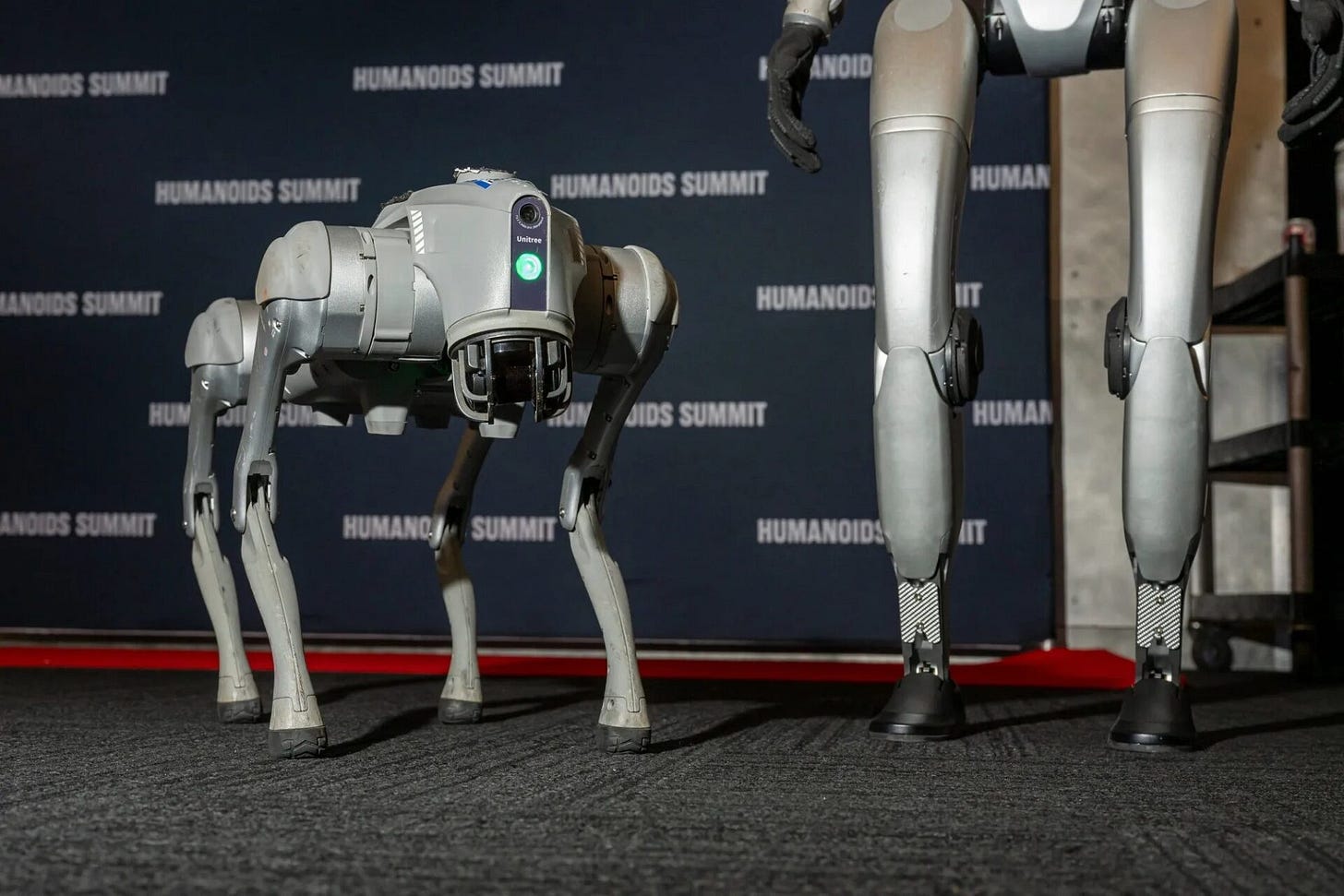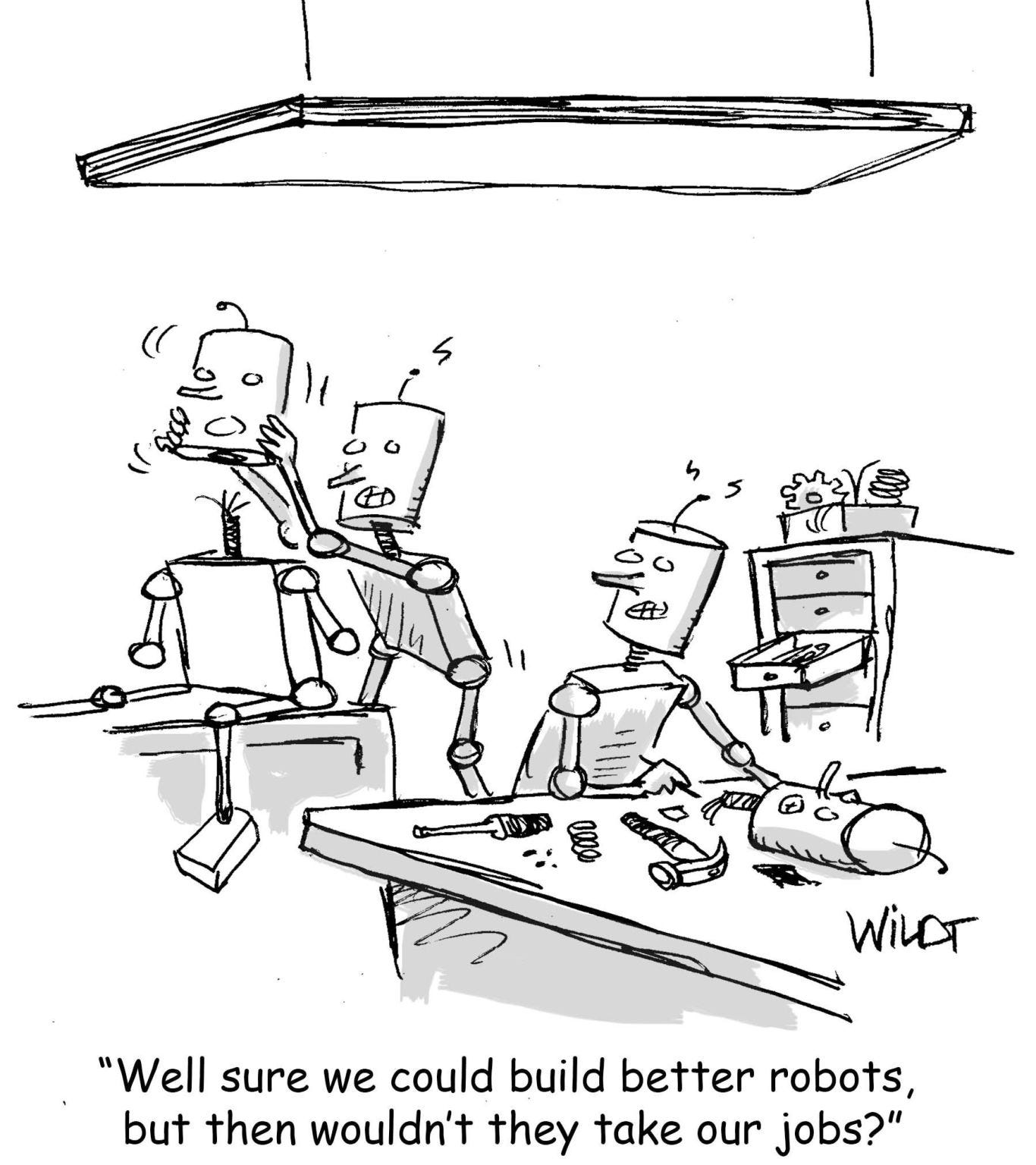EP.53 HUMANOIDS, HUMANOIDS, EVERYWHERE HUMANOIDS
Texas based robot manufacturer raised $350 million, a new humanoid company from London, Meta joins the humanoid race & much more...
Apptronik secures $350M to expand humanoid 🤯
Apptronik has raised $350 million in Series A funding to scale its Apollo humanoid robot, bringing its total funding to $378 million since its founding in 2016. The round was co-led by B Capital and Capital Factory, with Google also participating.
The company has partnered with Mercedes-Benz and GXO Logistics to test Apollo in real-world manufacturing and logistics environments. While future applications in homes and healthcare are possible, CEO Jeff Cardenas believes structured industrial settings are the best place to start.
Google DeepMind is collaborating with Apptronik to enhance Apollo’s AI capabilities. The company is also building a “data factory” in Austin, where robots will collect real-world data to improve performance.
Texas-based Capital Factory played a key role in assembling local investors, including families from the oil and gas industry, who were looking to invest in high-tech ventures.
Finnish company improves welding precision using cobots!
Finnish welding manufacturer Mesekon Oy has integrated ABB’s GoFa™ collaborative robot into its production line, automating intricate 3D welding tasks such as 90-degree saddle joints in shield piping. The cobot has significantly improved efficiency, precision, and workplace ergonomics.
Traditional industrial robots lacked the flexibility required for Mesekon’s complex welding needs. By adopting GoFa™, paired with Kemppi’s AX Mig Welder, Mesekon transitioned to 3D control technology, achieving 40% higher productivity and ensuring consistent, high-quality welds.
GoFa™’s advanced motion control and intuitive programming simplified operations, while its integrated torque sensors enabled smooth, repeatable welding at 430 amperes, eliminating cooling interruptions. The cobot’s user-friendly interface and pre-set welding parameters made integration seamless, enhancing operator safety by reducing exposure to hazardous environments.
Mesekon collaborated closely with ABB and Kemppi to optimize GoFa™ for their specific needs. Production operator Roni Rautala highlighted its speed, precision, and intuitive handling, exceeding human capabilities in complex geometries.
🦾 Feature sponsorship with ABB Robotics
Figure seeks $1.5 billion at $39.5 billion valuation 💸
Humanoid robotics startup Figure is in talks to raise $1.5 billion in a Series C funding round, which would value the company at $39.5 billion, according to sources. Parkway Venture Capital is expected to lead the round, with Align Ventures co-leading.
Figure AI, which counts BMW as a customer, is among many companies racing to develop AI-powered humanoid robots for logistics, warehousing, and manufacturing. The company previously raised $675 million in 2024 from investors like OpenAI, NVIDIA, Microsoft, and Jeff Bezos, at a valuation of $2.6 billion.
CEO Brett Adcock recently announced Figure AI’s decision to end its collaboration with OpenAI, citing internal breakthroughs in AI that make external partnerships unnecessary.
The funding talks come amid increased competition, with Meta Platforms launching a division for AI humanoid robots and Tesla planning to release its Optimus robot by 2025.
A new humanoid company from Europe! 🇬🇧
London-based startup Humanoid has revealed its HMND 01 robot, designed to work alongside humans in various industrial settings. The HMND 01 stands 175 cm tall and weighs 70 kg, featuring impressive specifications including a walking speed of 1.5 m/s, four-hour runtime, and the ability to carry payloads up to 15 kg.
A key feature of the HMND 01 is its modular design, allowing customers to customize different configurations of upper-body, lower-body, and end-effectors to meet specific requirements and reduce costs. The robot also comes with interchangeable garments designed to protect both its systems and the surrounding environment.
The robot is initially targeted at applications such as goods handling, picking, and packing, kitting, and part handling across retail, manufacturing, logistics, and warehouse facilities.
The company believes that humanoid robots are particularly well-suited for integration into existing environments, as the world is already designed for human-shaped workers.
Meta enters humanoid robotics race 🥽
Meta is taking a bold step into the humanoid robotics space, setting up a new division within Reality Labs to develop AI-driven robots that assist with physical tasks. According to an internal memo, Meta’s Chief Technology Officer Andrew Bosworth outlined the company’s goal to integrate its Llama AI models into robotics, expanding its AI capabilities beyond social media.
The new robotics product group will be led by Marc Whitten, former CEO of self-driving car company Cruise. Despite Reality Labs losing $5 billion in Q4 2024, Meta is betting big on AI-driven robotics, joining the race to develop humanoid robots. While progress in robotics has been slower than in AI chatbots, Meta has been investing in "embodied AI", aiming to develop assistants that see, hear, and navigate the real world.
Meta plans to build its own humanoid robots for household tasks, while also developing AI, sensors, and software that can power robots from manufacturers like Unitree Robotics and Figure AI. The company does not intend to launch a Meta-branded robot immediately but has begun discussions with industry players to shape its future in robotics.
Meme of the week 🤖
Isn’t that the roboception?
The thin line between robot testing and abuse 🥊
Chinese startup Booster Robotics has released intense footage of its T1 humanoid robot enduring extreme durability tests. Engineers smash glass bottles over its head, strike it with sledgehammers, and even break a stick on its chest—yet the 1.2-meter, 30 kg robot keeps moving.
This comes amid rising debates on robot ethics after Twitch streamer Kai Cenat was criticized for roughhandling a Unitree G1 humanoid. While some call such tests "robot abuse," others argue they are essential for proving resilience. Companies like Boston Dynamics and Unitree have long used similar stress trials to showcase their robots’ toughness.
Booster Robotics, however, is taking things to another level, emphasizing extreme durability as a core feature. The company has also partnered with RoboCup, a competition aiming to develop autonomous humanoid soccer players by 2050. As testing becomes more intense, the debate over robot treatment vs. necessary durability trials continues.







